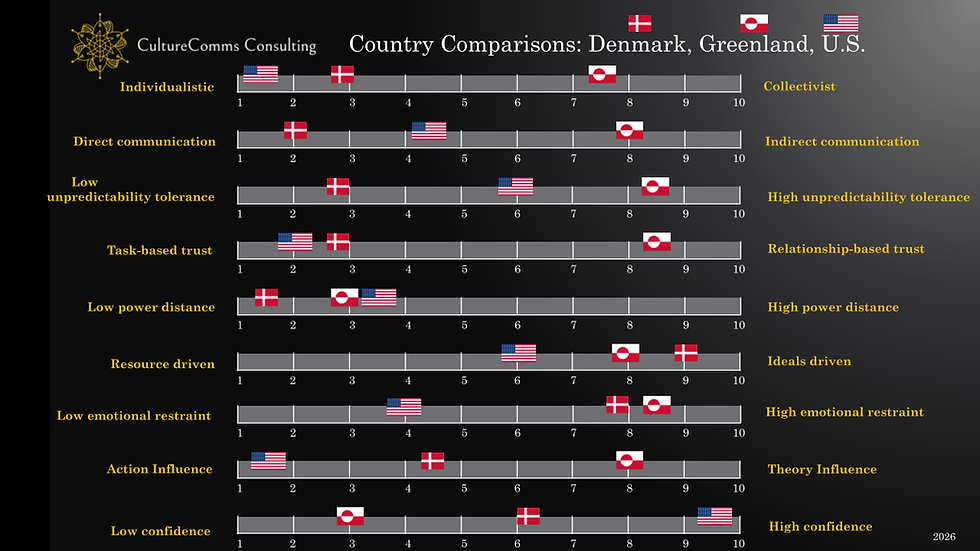What's it Like Working in Nepal? Insights for Your Next Professional Interactions in the Himalayas
- adamraelson
- Dec 3, 2024
- 3 min read
Updated: Dec 12, 2024
You may have read my article about working in Zimbabwe, following the first half of VSO’s Cross-Country Learning & Partners' Exchange. Well, the second half of this unique journey took place in October, this time in Nepal — a mountainous South Asian country nestled in the Himalayas between China and India. This exchange connected VSO project leaders and partners from Zimbabwe and Nepal to share best practices in agroecology — a climate-resilient approach that supports local economies, strengthens resilience, and shortens supply chains.
The exchange brought together representatives from the Zimbabwe Smallholder Organic Farmers Federation (ZimSOFF), TSURO Trust, Fambidzinai Permaculture Centre, and Nepal’s National Farmers Group Federation (NFGF). My role was to document the intercultural exchange and provide recap for partners, donors, and policymakers in government.
Here are some observations on what it’s like to work in Nepal — and some advice for those considering professional interactions in this scenic and multiethnic country:

1. Greet with “Namaste” and Folded Hands
In Nepal, “namaste” — with palms pressed together at the heart — is the universal greeting, thanking, and parting gesture. Even in professional settings, physical contact isn’t typically preferred, so refrain from handshakes or hugs, and especially between men and women. This custom may feel formal, but it’s deeply respectful and is the way to go.

2. Be Extra Polite and Wear a Gentle Smile
Nepalis may seem reserved, but they show politeness in quiet, meaningful ways. Direct eye contact and large gestures aren’t customary, so lead with a soft-spoken approach. When addressing colleagues, attach “-ji” to their names as a sign of respect for seniority, whether or not they’re present. A friendly smile at all times speaks volumes. Giving or receiving compliments, especially about Nepal’s culture, are also received with folded hands in a “namaste” gesture.
3. Negotiation Is a Welcomed Tradition
Don’t be surprised if bargaining isn’t just reserved for the market here. Negotiation is seen as a pleasant interaction and takes place in restaurants, shops, department stores, and even during business discussions. If you aren’t used to this, keep it lighthearted and enjoy the banter. Nepalis welcome bargaining as a sign of engagement so embrace it with a light heart and mutual enjoyment.
4. Establish Personal Bonds First
When meeting new colleagues, the conversation may start with topics unrelated to business. You might chat about family, shared life experiences, and especially food before the focus shifts to work. This initial exchange is all about building a bond of personal trust, which is highly valued in Nepal. People may even invite you into their homes to meet their families, and if you’re comfortable, accepting these offers can deepen professional ties by establishing the relationship-first approach Nepalis prefer.
5. Gift-Giving for Relationship-Building
As part of that relationship-first approach, gift exchanges play a big role in establishing personal bonds. You may notice Nepali colleagues giving you traditional souvenirs, flower or silk garlands, homemade food, or company-branded materials, even in professional settings. Bring along some small items from your home country as tokens of goodwill. It’s less about the gift itself and more about the shared moment, which Nepalis view as a gesture of mutual respect and, again, establishing trust.

6. Schedules Are Flexible
In Nepal, time may be treated with a bit more flexibility than in your country, largely due to infrastructure, geographic challenges, and weather. Transportation delays (even with flights) and initial meeting times may therefore vary. Consider these moments as chances for informal conversations, allowing you to strengthen relationships with colleagues. When meetings do begin, Nepalis are known for giving their full focus, so be sure to do the same in return. Saving face and remaining calm even if meetings run over time also shows respect to those currently around you — it’s an appreciated quality in Nepal's work culture.
#nepal #vso #agroecology #internationalbusiness #crossculturalcommunication #asia #sustainability #workingabroad #namaste




Comments